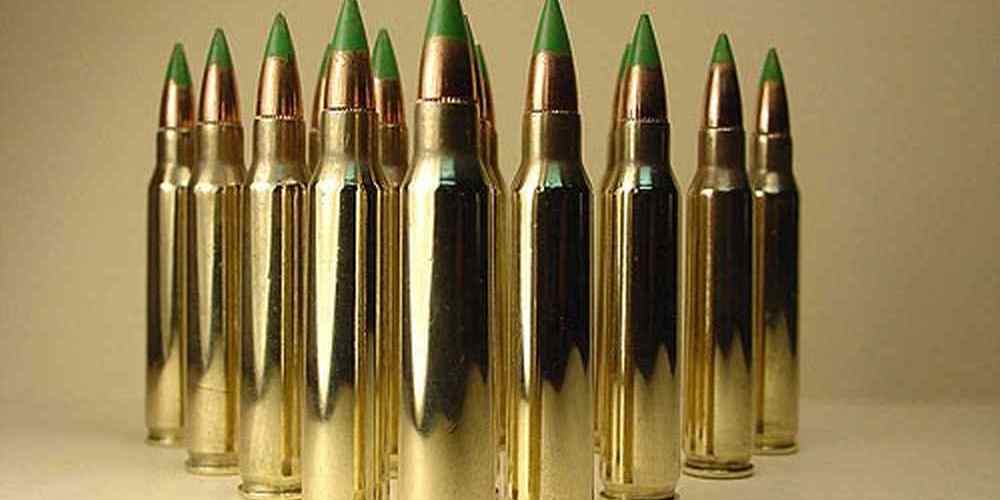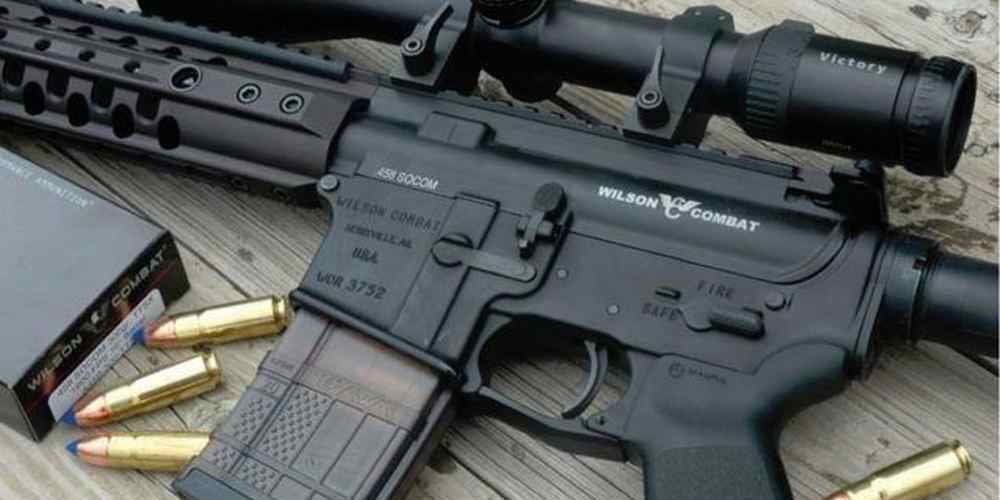Enhanced performance and reduced barrel fouling with polymer-coated bullets for your AR15.
Pros and Cons of Using Polymer-Coated Bullets in Your AR15
Polymer-coated bullets have been gaining popularity among AR15 enthusiasts in recent years. These bullets are coated with a thin layer of polymer, which serves as a protective barrier between the bullet and the barrel of the gun. This coating is designed to reduce fouling, improve accuracy, and increase the lifespan of the barrel. But are polymer-coated bullets really worth it for your AR15? Let’s take a closer look at the pros and cons of using polymer-coated bullets in your favorite rifle.
One of the biggest advantages of using polymer-coated bullets is their ability to reduce fouling. Fouling occurs when residue from the gunpowder builds up in the barrel of the gun, causing it to become dirty and less accurate. The polymer coating on these bullets helps to prevent this buildup, making it easier to clean your gun and maintain its accuracy over time. This can be especially beneficial for AR15 owners who shoot frequently and want to spend less time cleaning their guns.
In addition to reducing fouling, polymer-coated bullets are also known for their ability to improve accuracy. The smooth surface of the polymer coating helps the bullet travel more smoothly down the barrel, resulting in better shot placement and tighter groupings. This can be a game-changer for competitive shooters or hunters who rely on precision and consistency in their shooting.
Another advantage of using polymer-coated bullets is their ability to increase the lifespan of your barrel. The polymer coating acts as a protective barrier, reducing the amount of wear and tear on the barrel caused by the friction of the bullet traveling down the barrel. This can help prolong the life of your barrel and save you money in the long run by reducing the need for frequent barrel replacements.
Despite these benefits, there are some drawbacks to using polymer-coated bullets in your AR15. One of the main concerns is the cost. Polymer-coated bullets tend to be more expensive than traditional copper-jacketed bullets, which can be a deterrent for some shooters. However, many enthusiasts argue that the long-term benefits of using polymer-coated bullets outweigh the initial cost.
Another potential downside of using polymer-coated bullets is their availability. While these bullets are becoming more popular, they may not be as readily available as traditional bullets in some areas. This can make it difficult to find the right ammunition for your AR15, especially if you prefer to buy in bulk or shoot a specific caliber.
In conclusion, polymer-coated bullets offer a number of benefits for AR15 owners, including reduced fouling, improved accuracy, and increased barrel lifespan. While there are some drawbacks to consider, such as cost and availability, many shooters find that the pros outweigh the cons when it comes to using polymer-coated bullets in their favorite rifle. If you’re looking to improve the performance of your AR15 and are willing to invest in high-quality ammunition, polymer-coated bullets may be worth considering for your next range session or hunting trip.
Comparing Performance of Polymer-Coated Bullets vs Traditional Bullets
When it comes to ammunition for your AR15, there are a plethora of options available on the market. One of the newer innovations in bullet technology is the use of polymer-coated bullets. These bullets are coated with a thin layer of polymer, which is designed to reduce fouling in the barrel and improve overall performance. But are polymer-coated bullets really worth it for your AR15? Let’s take a closer look at how they compare to traditional bullets in terms of performance.

One of the main advantages of polymer-coated bullets is their ability to reduce fouling in the barrel. Fouling occurs when residue from the gunpowder builds up in the barrel, which can affect accuracy and reliability. By using a polymer coating, these bullets are able to reduce the amount of fouling that occurs, resulting in a cleaner barrel and more consistent performance.
In addition to reducing fouling, polymer-coated bullets are also known for their ability to improve accuracy. The smooth surface of the polymer coating helps the bullet travel more smoothly down the barrel, resulting in better stability and less deviation from the intended trajectory. This can be especially beneficial for long-range shooting, where even the slightest deviation can make a big difference.
Another advantage of polymer-coated bullets is their ability to reduce friction as they travel down the barrel. This can result in higher velocities and better energy transfer upon impact, which can lead to more effective terminal ballistics. In other words, polymer-coated bullets are able to deliver more energy to the target, resulting in better stopping power.
But how do polymer-coated bullets compare to traditional bullets in terms of performance? While polymer-coated bullets offer several advantages, they may not be the best option for every shooter. Traditional bullets, which are typically jacketed with copper or other metals, have been tried and tested for decades and are known for their reliability and consistency.
One potential downside of polymer-coated bullets is their cost. These bullets tend to be more expensive than traditional bullets, which can be a deterrent for some shooters. Additionally, some shooters may prefer the feel and performance of traditional bullets, which they have been using for years.
In conclusion, polymer-coated bullets offer several advantages in terms of reducing fouling, improving accuracy, and increasing energy transfer. However, they may not be the best option for every shooter, especially those who are on a budget or prefer the feel of traditional bullets. Ultimately, the decision to use polymer-coated bullets in your AR15 will depend on your personal preferences and shooting style. If you are looking to improve the performance of your AR15 and are willing to invest in higher-quality ammunition, polymer-coated bullets may be worth considering.
Cost Analysis of Using Polymer-Coated Bullets in Your AR15
When it comes to ammunition for your AR15, there are a variety of options to choose from. One option that has gained popularity in recent years is polymer-coated bullets. These bullets are coated with a thin layer of polymer, which is designed to reduce fouling in the barrel and improve overall performance. But are polymer-coated bullets worth the investment for your AR15? In this article, we will break down the cost analysis of using polymer-coated bullets in your AR15.
First and foremost, let’s talk about the cost of polymer-coated bullets compared to traditional copper-jacketed bullets. Polymer-coated bullets are typically more expensive than traditional bullets, with prices ranging from 10-20% higher. This price difference may seem significant at first, but it is important to consider the long-term benefits of using polymer-coated bullets.
One of the main advantages of polymer-coated bullets is their reduced fouling in the barrel. Fouling occurs when residue from the gunpowder builds up in the barrel, which can affect accuracy and performance. By using polymer-coated bullets, you can reduce fouling and extend the life of your barrel. This means that you may need to clean your AR15 less frequently, saving you time and money on cleaning supplies.
Additionally, polymer-coated bullets are known for their smooth feeding and reliable performance. The polymer coating reduces friction as the bullet travels down the barrel, resulting in more consistent velocities and improved accuracy. This can be especially beneficial for competitive shooters or hunters who require precision and reliability in their ammunition.
Another factor to consider when analyzing the cost of using polymer-coated bullets is their impact on the environment. Traditional copper-jacketed bullets can release lead and other harmful chemicals into the environment when fired. Polymer-coated bullets, on the other hand, are designed to be environmentally friendly and reduce the amount of toxic chemicals released into the air. While this may not have a direct impact on your wallet, it is an important consideration for those who are environmentally conscious.
In conclusion, the cost analysis of using polymer-coated bullets in your AR15 is a complex issue that depends on a variety of factors. While polymer-coated bullets may be more expensive upfront, they offer long-term benefits such as reduced fouling, improved performance, and environmental friendliness. Ultimately, the decision to use polymer-coated bullets in your AR15 will depend on your individual needs and preferences.
Overall, polymer-coated bullets are a worthwhile investment for those who value performance, reliability, and environmental sustainability in their ammunition. While the initial cost may be higher, the long-term benefits of using polymer-coated bullets make them a cost-effective choice for many AR15 owners. So, if you are looking to improve the performance of your AR15 and reduce your environmental impact, consider making the switch to polymer-coated bullets today.
Long-Term Effects of Using Polymer-Coated Bullets on Your AR15
When it comes to ammunition for your AR15, there are a variety of options to choose from. One option that has gained popularity in recent years is polymer-coated bullets. These bullets are coated with a thin layer of polymer, which is designed to reduce fouling and improve accuracy. But are polymer-coated bullets worth it for your AR15 in the long run?
One of the main benefits of using polymer-coated bullets is their ability to reduce fouling in your AR15. Fouling occurs when residue from the gunpowder builds up in the barrel of your firearm, which can lead to decreased accuracy and reliability. By using polymer-coated bullets, you can help prevent fouling and keep your AR15 running smoothly.
In addition to reducing fouling, polymer-coated bullets can also improve accuracy. The polymer coating helps to reduce friction as the bullet travels down the barrel, which can result in tighter groupings and more consistent shot placement. This can be especially beneficial for competitive shooters or hunters who require precision in their shooting.
Another advantage of polymer-coated bullets is their ability to protect the barrel of your AR15. The polymer coating acts as a barrier between the bullet and the barrel, helping to prevent wear and tear on the rifling. This can help extend the life of your firearm and save you money on costly barrel replacements.
While there are many benefits to using polymer-coated bullets, it is important to consider the potential drawbacks as well. Some shooters have reported issues with polymer-coated bullets causing increased barrel wear over time. This can be a concern for those who shoot frequently or use their AR15 for extended periods.
Additionally, some shooters have found that polymer-coated bullets can be more expensive than traditional jacketed bullets. While the cost difference may not be significant for casual shooters, it can add up over time for those who shoot regularly. It is important to weigh the cost versus the benefits when deciding whether polymer-coated bullets are worth it for your AR15.
In conclusion, polymer-coated bullets can offer several advantages for AR15 owners, including reduced fouling, improved accuracy, and barrel protection. However, it is important to consider the potential drawbacks, such as increased barrel wear and higher cost. Ultimately, the decision to use polymer-coated bullets will depend on your shooting habits and preferences.
If you are looking to improve the performance of your AR15 and are willing to invest in higher-quality ammunition, polymer-coated bullets may be worth considering. Just be sure to weigh the pros and cons before making a decision.
User Reviews and Recommendations for Polymer-Coated Bullets in AR15s
If you’re a gun enthusiast or a seasoned AR15 owner, you may have heard about polymer-coated bullets and wondered if they’re worth the investment. Polymer-coated bullets have been gaining popularity in recent years due to their potential benefits, such as reduced fouling, increased barrel life, and improved accuracy. But are these claims just hype, or do polymer-coated bullets actually deliver on their promises?
Many AR15 owners who have made the switch to polymer-coated bullets swear by their performance. One of the main advantages of polymer-coated bullets is their ability to reduce fouling in the barrel. Traditional copper-jacketed bullets can leave behind residue that builds up over time and can affect the accuracy and reliability of your firearm. Polymer-coated bullets, on the other hand, are designed to minimize fouling, resulting in cleaner shooting and easier maintenance.
In addition to reducing fouling, polymer-coated bullets are also believed to increase barrel life. The polymer coating acts as a protective barrier between the bullet and the barrel, reducing friction and heat buildup during firing. This can help prevent wear and tear on your barrel, potentially extending its lifespan and saving you money in the long run.
Another benefit of polymer-coated bullets is their potential to improve accuracy. The smooth, uniform coating on the bullets can help reduce inconsistencies in bullet shape and weight, leading to more consistent velocities and trajectories. This can result in tighter groupings and better overall performance when shooting your AR15.
But are polymer-coated bullets really worth the investment? The answer may depend on your specific needs and preferences. Some AR15 owners may find that the benefits of polymer-coated bullets are worth the slightly higher cost compared to traditional bullets. Others may not notice a significant difference in performance and may prefer to stick with what they know.
One thing to keep in mind when considering polymer-coated bullets is that not all brands are created equal. It’s important to do your research and read user reviews to find a reputable manufacturer that produces high-quality polymer-coated bullets. Some users have reported issues with certain brands, such as inconsistent coating thickness or flaking, which can affect performance and reliability.
Ultimately, the decision to switch to polymer-coated bullets for your AR15 is a personal one. If you’re looking to reduce fouling, increase barrel life, and improve accuracy, polymer-coated bullets may be worth trying out. However, if you’re satisfied with the performance of traditional bullets and don’t see the need for any additional benefits, you may decide to stick with what you know.
In conclusion, polymer-coated bullets have the potential to offer several advantages for AR15 owners, including reduced fouling, increased barrel life, and improved accuracy. While the decision to switch to polymer-coated bullets is ultimately up to you, many users have found them to be a worthwhile investment. If you’re curious about trying out polymer-coated bullets for your AR15, consider doing some research, reading user reviews, and testing out a few different brands to see if they make a difference in your shooting experience.




